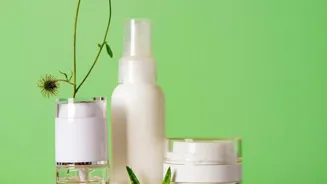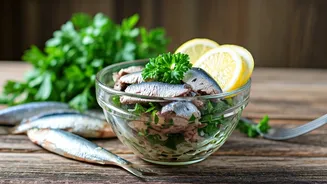Discover the power of natural ingredients for glowing skin! Learn about Aloe Vera, Turmeric, Neem, Honey, and more!
In a world flooded with cosmetics promising instant radiance, it's easy to get lost in the
maze of chemical names and complicated formulas. But what if the secret to healthy, glowing skin lies not in synthetic compounds, but in the gentle embrace of nature itself?
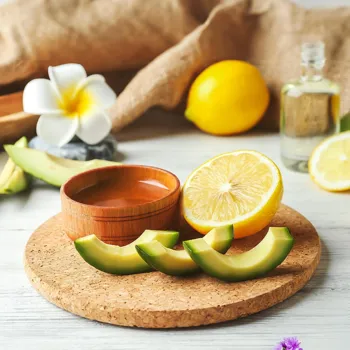
More and more Indians are turning towards natural and organic beauty products, seeking to nourish their skin with ingredients Mother Earth has lovingly provided. This trend isn't just a fad; it's a conscious shift towards sustainable beauty that benefits both our skin and the planet.
So, put down those harsh chemicals and discover the top 8 natural ingredients that can transform your beauty routine!
Aloe vera: a skincare powerhouse for soothing, healing, and nourishing skin
Aloe vera, a succulent plant packed with goodness, has been a staple in traditional medicine for centuries. Its gel-like substance is a powerhouse of vitamins, minerals, and antioxidants, making it a perfect ingredient for a variety of skin concerns.
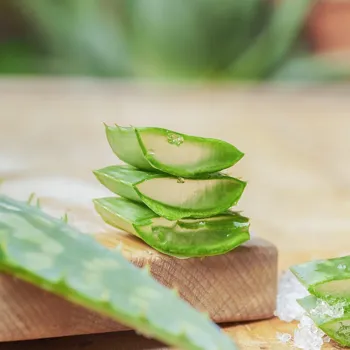
Aloe vera is renowned for its incredible soothing and healing properties. Sunburn got you down? Aloe vera can provide instant relief and promote faster healing. Dealing with dryness and irritation? Aloe vera's moisturizing abilities will leave your skin feeling soft and supple.
It's even great for acne-prone skin, thanks to its anti-inflammatory and antibacterial properties, which can help to reduce redness and prevent breakouts. Look for aloe vera in your moisturizers, sunscreens, cleansers, and even makeup removers for a dose of natural goodness.
Remember to check the ingredient list to ensure that aloe vera is listed high up, indicating a significant concentration in the product. A small amount won't provide the full benefits.
Turmeric: Beauty powerhouse for glowing skin, fights inflammation and aging
Turmeric, the vibrant yellow spice that's a kitchen staple in most Indian households, isn't just for cooking! It's a potent beauty ingredient that's been used for centuries in Ayurvedic medicine for its incredible healing properties.
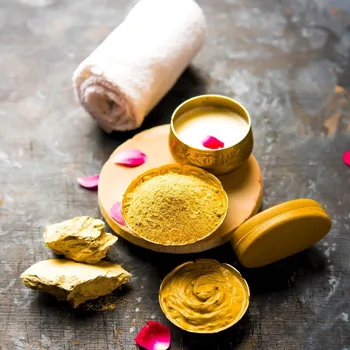
The active compound in turmeric, curcumin, is a powerful antioxidant and anti-inflammatory agent. This means it can fight free radicals that damage skin cells and reduce inflammation that leads to acne, redness, and even signs of aging.
Turmeric is also known to brighten skin tone, reduce dark spots and hyperpigmentation, and give your skin a radiant glow. You can find turmeric in face masks, creams, and serums. You can also create your own DIY turmeric face masks at home by mixing turmeric powder with yogurt or honey.
However, be cautious as turmeric can stain the skin, so always use it in moderation and test it on a small area first.
Neem: potent remedy for acne and oily skin
Neem, with its slightly bitter scent, might not be the most fragrant ingredient, but its benefits for acne-prone and oily skin are undeniable. This powerful herb is a staple in Ayurvedic medicine, known for its antibacterial, antifungal, and anti-inflammatory properties.
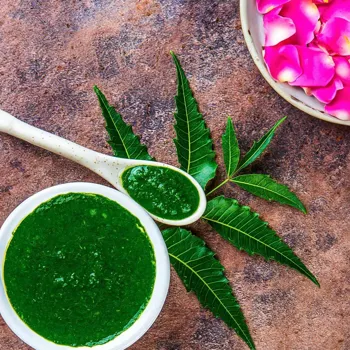
Neem helps to effectively combat acne-causing bacteria, reduce inflammation, and prevent future breakouts. It also helps to control excess oil production, keeping your skin clear and matte. Neem is available in various forms, including neem oil, neem powder, and neem extract.
You can find it in face washes, toners, masks, and spot treatments. For a quick and easy acne treatment, try applying a paste of neem powder and water to your pimples overnight.
Honey is a natural humectant for skin, with antibacterial and antioxidant properties
Honey, that golden liquid made by bees, is more than just a delicious sweetener; it's a natural humectant, meaning it attracts and retains moisture. This makes it a fantastic ingredient for dry and dehydrated skin.

Honey also possesses antibacterial and antioxidant properties, which can help to fight acne and protect your skin from damage. It's also considered a mild exfoliant, helping to gently remove dead skin cells and reveal a brighter complexion.
You can find honey in cleansers, moisturizers, masks, and lip balms. A simple honey mask can do wonders for dry and dull skin. Just apply a thin layer of raw honey to your face, leave it on for 15-20 minutes, and then rinse it off with warm water.
Coconut oil: versatile beauty oil for skin, but may clog pores
Coconut oil, with its tropical scent and rich texture, has become a beauty industry darling in recent years. This versatile oil is packed with fatty acids that nourish and moisturize the skin. It's excellent for dry skin, providing deep hydration and leaving it feeling soft and supple.
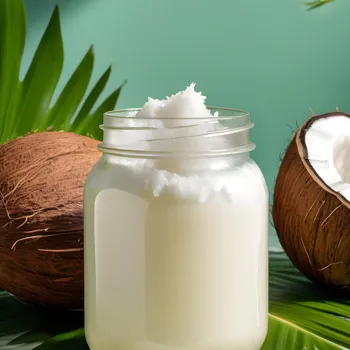
Coconut oil can also be used as a makeup remover, effectively dissolving dirt and grime without stripping the skin of its natural oils. However, it's important to note that coconut oil can be comedogenic for some people, meaning it can clog pores and lead to breakouts.
If you have oily or acne-prone skin, use it sparingly or avoid it altogether. Stick to using it as a body moisturizer or makeup remover.
Sandalwood's benefits in beauty rituals for skin care
Sandalwood, with its distinctive woody fragrance, is a prized ingredient in Indian beauty rituals. It's known for its cooling, soothing, and anti-inflammatory properties. Sandalwood can help to calm irritated skin, reduce redness, and even out skin tone.
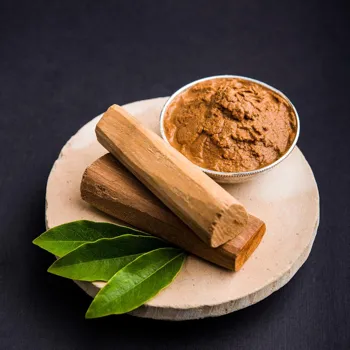
It's often used in face masks, creams, and soaps, particularly for sensitive or acne-prone skin. Sandalwood oil is also believed to have antiseptic properties, making it beneficial for treating minor cuts and blemishes.
Before using sandalwood products, make sure you are buying products from sustainable sources, as sandalwood is an endangered species. Look for reputable brands that source their sandalwood responsibly.
Rosewater: fragrant toner hydrates skin, balances pH, tightens pores, soothes irritation
Rosewater, derived from rose petals, is a fragrant and hydrating liquid that has been used for centuries for its beauty benefits. It's a natural toner that helps to balance the skin's pH level, tighten pores, and soothe irritation.
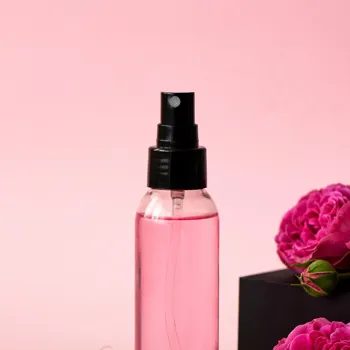
Rosewater is also a humectant, attracting moisture to the skin and keeping it hydrated throughout the day. It has a delicate floral scent that can uplift your mood and leave your skin feeling refreshed.
You can use rosewater as a toner after cleansing, or as a refreshing face mist throughout the day. You can also add it to your DIY face masks for an extra boost of hydration. So, find a product or create yourself and see its magical effect.
Shea butter, derived from the nuts of the shea tree, is a rich and luxurious emollient that's perfect for dry and damaged skin. It's packed with fatty acids, vitamins, and antioxidants that nourish and protect the skin. Shea butter helps to improve skin elasticity, reduce the appearance of wrinkles, and soothe irritation. It's also a great ingredient for treating eczema and psoriasis. You can find shea butter in moisturizers, body butters, lip balms, and hair conditioners. For intense hydration, try applying raw shea butter to your skin after showering.
Choosing natural ingredients for your cosmetics is an investment in your skin's health and well-being. By incorporating these top 8 natural wonders into your beauty routine, you can achieve a radiant and healthy complexion without harsh chemicals or synthetic ingredients.
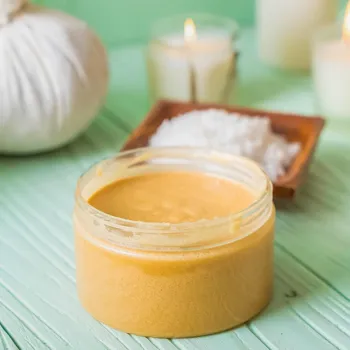
Remember to always read labels carefully and choose products that are truly natural and organic. Your skin will thank you for it!
The beauty industry is filled with marketing buzzwords, and it can be difficult to discern which products are truly natural and which are simply greenwashed.
Look for certifications from reputable organizations like Ecocert, USDA Organic, or COSMOS to ensure that the product meets strict standards for natural and organic ingredients.
Always perform a patch test before using any new product, especially if you have sensitive skin.
Apply a small amount of the product to a discreet area of your skin, such as the inside of your wrist, and wait 24-48 hours to see if any irritation occurs.
While natural ingredients are generally gentler than synthetic ones, they can still cause allergic reactions in some people.
If you experience any redness, itching, or swelling after using a natural product, discontinue use immediately and consult a dermatologist.
AI Generated Content. Glance/InMobi shall have no liability for the content